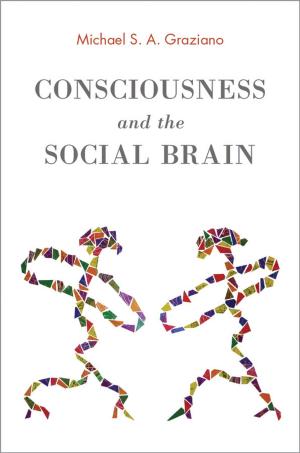Contracts of Fiction
Cognition, Culture, Community
Nonfiction, Religion & Spirituality, Philosophy, Aesthetics, Fiction & Literature, Literary Theory & Criticism, Theory| Author: | Ellen Spolsky | ISBN: | 9780190232160 |
| Publisher: | Oxford University Press | Publication: | March 31, 2015 |
| Imprint: | Oxford University Press | Language: | English |
| Author: | Ellen Spolsky |
| ISBN: | 9780190232160 |
| Publisher: | Oxford University Press |
| Publication: | March 31, 2015 |
| Imprint: | Oxford University Press |
| Language: | English |
The Contracts of Fiction reconnects our fictional worlds to the rest of our lives. Countering the contemporary tendency to dismiss works of imagination as enjoyable but epistemologically inert, the book considers how various kinds of fictions construct, guide, and challenge institutional relationships within social groups. The contracts of fiction, like the contracts of language, law, kinship, and money, describe the rules by which members of a group toggle between tokens and types, between their material surroundings - the stuff of daily life - and the abstractions that give it value. Rethinking some familiar literary concepts such as genre and style from the perspective of recent work in the biological, cognitive, and brain sciences, the book displays how fictions engage bodies and minds in ways that help societies balance continuity and adaptability. Being part of a community means sharing the ways its members use stories, pictures, plays and movies, poems and songs, icons and relics, to generate usable knowledge about the people, objects, beliefs and values in their environment. Exposing the underlying structural and processing homologies among works of imagination and life processes such as metabolism and memory, Ellen Spolsky demonstrates the seamless connection of life to art by revealing the surprising dependence of both on disorder, imbalance, and uncertainty. In early modern London, for example, reformed religion, expanding trade, and changed demographics made the obsolescent courts a source of serious inequities. Just at that time, however, a flood of wildly popular revenge tragedies, such as Hamlet, by their very form, by their outrageous theatrical grotesques, were shouting the need for change in the justice system. A sustained discussion of the genre illustrates how biological homeostasis underpins the social balance that we maintain with difficulty, and how disorder itself incubates new understanding.
The Contracts of Fiction reconnects our fictional worlds to the rest of our lives. Countering the contemporary tendency to dismiss works of imagination as enjoyable but epistemologically inert, the book considers how various kinds of fictions construct, guide, and challenge institutional relationships within social groups. The contracts of fiction, like the contracts of language, law, kinship, and money, describe the rules by which members of a group toggle between tokens and types, between their material surroundings - the stuff of daily life - and the abstractions that give it value. Rethinking some familiar literary concepts such as genre and style from the perspective of recent work in the biological, cognitive, and brain sciences, the book displays how fictions engage bodies and minds in ways that help societies balance continuity and adaptability. Being part of a community means sharing the ways its members use stories, pictures, plays and movies, poems and songs, icons and relics, to generate usable knowledge about the people, objects, beliefs and values in their environment. Exposing the underlying structural and processing homologies among works of imagination and life processes such as metabolism and memory, Ellen Spolsky demonstrates the seamless connection of life to art by revealing the surprising dependence of both on disorder, imbalance, and uncertainty. In early modern London, for example, reformed religion, expanding trade, and changed demographics made the obsolescent courts a source of serious inequities. Just at that time, however, a flood of wildly popular revenge tragedies, such as Hamlet, by their very form, by their outrageous theatrical grotesques, were shouting the need for change in the justice system. A sustained discussion of the genre illustrates how biological homeostasis underpins the social balance that we maintain with difficulty, and how disorder itself incubates new understanding.















